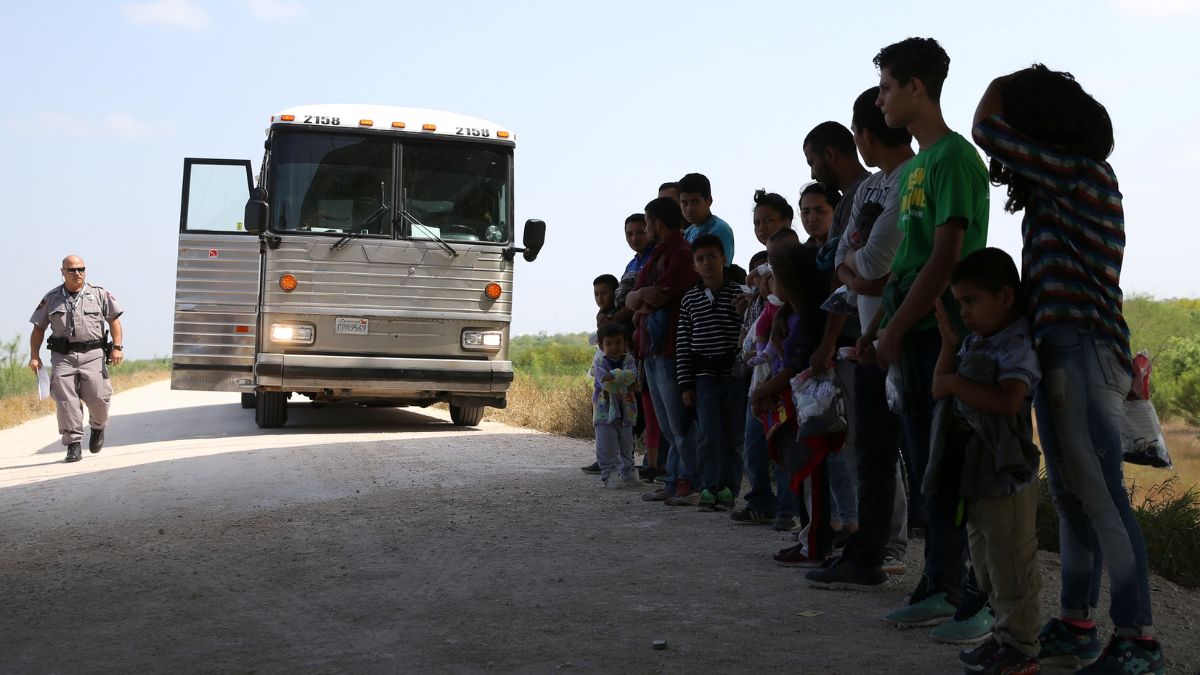Trump scores major win as Supreme Court lifts limits on third‑country deportations
)
US Supreme Court Allows "Third-Country" Deportations to Resume
Washington D.C. – The United States Supreme Court has cleared the way for the resumption of "third-country" deportations, a policy championed by the Trump administration that allows the US government to deport undocumented migrants to countries other than their country of origin. The decision, delivered through an unsigned order, lifts a stay previously imposed by a lower court, marking a significant victory for proponents of stricter immigration enforcement.
Supreme Court's Unsigned Order Sparks Debate
The Supreme Court’s action, taken without explicit explanation, has immediately ignited debate regarding its implications for international law and humanitarian concerns. The policy allows for the deportation of individuals who have transited through a third country on their way to the United States, potentially sending them to nations where they may face persecution or lack adequate legal protections.
The decision comes after the Justice Department requested the Supreme Court to lift a stay issued by the Ninth Circuit Court of Appeals. That lower court had previously blocked the implementation of the policy, citing concerns about due process and the potential for harm to asylum seekers. The Supreme Court's order effectively reverses that decision, allowing the government to proceed with deportations under the "third-country" rule.
The court’s three liberal justices dissented from the unsigned order, signaling a deep division within the judiciary regarding the legality and morality of the policy. Their dissent, though not detailed in the initial order, likely rests on arguments related to international treaty obligations, asylum laws, and the constitutional rights of migrants within US jurisdiction.
Context: Trump Administration's Immigration Policies
The “third-country” deportation policy is a cornerstone of the Trump administration's broader efforts to curtail illegal immigration. Since taking office, President Trump has implemented a series of measures aimed at tightening border security, restricting asylum access, and increasing deportations. This particular policy gained prominence in negotiations with countries in Central America, where the US sought agreements to allow for the deportation of migrants who had passed through those nations.
The historical context of US immigration policy reveals a recurring tension between national security concerns, economic interests, and humanitarian obligations. Throughout the 20th and 21st centuries, US immigration laws have undergone significant shifts, reflecting changing demographics, geopolitical realities, and evolving social attitudes. The current debate over "third-country" deportations is a continuation of this long-standing struggle to balance competing priorities.
Expert Analysis: Legal and Humanitarian Implications
Dr. Amelia Rodriguez, a professor of international law at Georgetown University, commented on the potential ramifications of the Supreme Court's decision. "This ruling raises serious questions about the US commitment to international refugee law," she stated. "The principle of non-refoulement, which prohibits the return of refugees to countries where they face persecution, is potentially undermined by this policy. The lack of a detailed explanation from the Supreme Court makes it difficult to assess the legal reasoning behind the decision and its long-term impact."
Further adding to the discussion, human rights organizations have voiced strong criticism of the "third-country" deportation policy. They argue that it violates fundamental human rights principles by potentially exposing vulnerable migrants to dangerous conditions in countries lacking adequate asylum systems or rule of law. Critics emphasize that many asylum seekers are fleeing violence, persecution, and instability in their home countries, and that sending them to third countries without proper safeguards could put their lives at risk.
Looking Ahead: Future Challenges and Legal Battles
The Supreme Court's decision is likely to face continued legal challenges. Advocacy groups are expected to file lawsuits arguing that the policy violates US immigration laws, international treaties, and constitutional protections. The legal battles could focus on issues such as due process rights, the adequacy of asylum procedures in third countries, and the potential for human rights abuses.
The implementation of the "third-country" deportation policy also presents logistical and diplomatic challenges. The US government will need to negotiate agreements with third countries to accept deported migrants and ensure that they receive adequate protection and access to asylum procedures. The willingness of these countries to cooperate and their capacity to handle large numbers of deportees remain uncertain.
The resumption of "third-country" deportations marks a significant shift in US immigration enforcement policy and is likely to have far-reaching consequences for asylum seekers and migrants seeking refuge in the United States. The legal and ethical debates surrounding this policy are expected to continue in the coming months and years.
Originally sourced from: Firstpost
